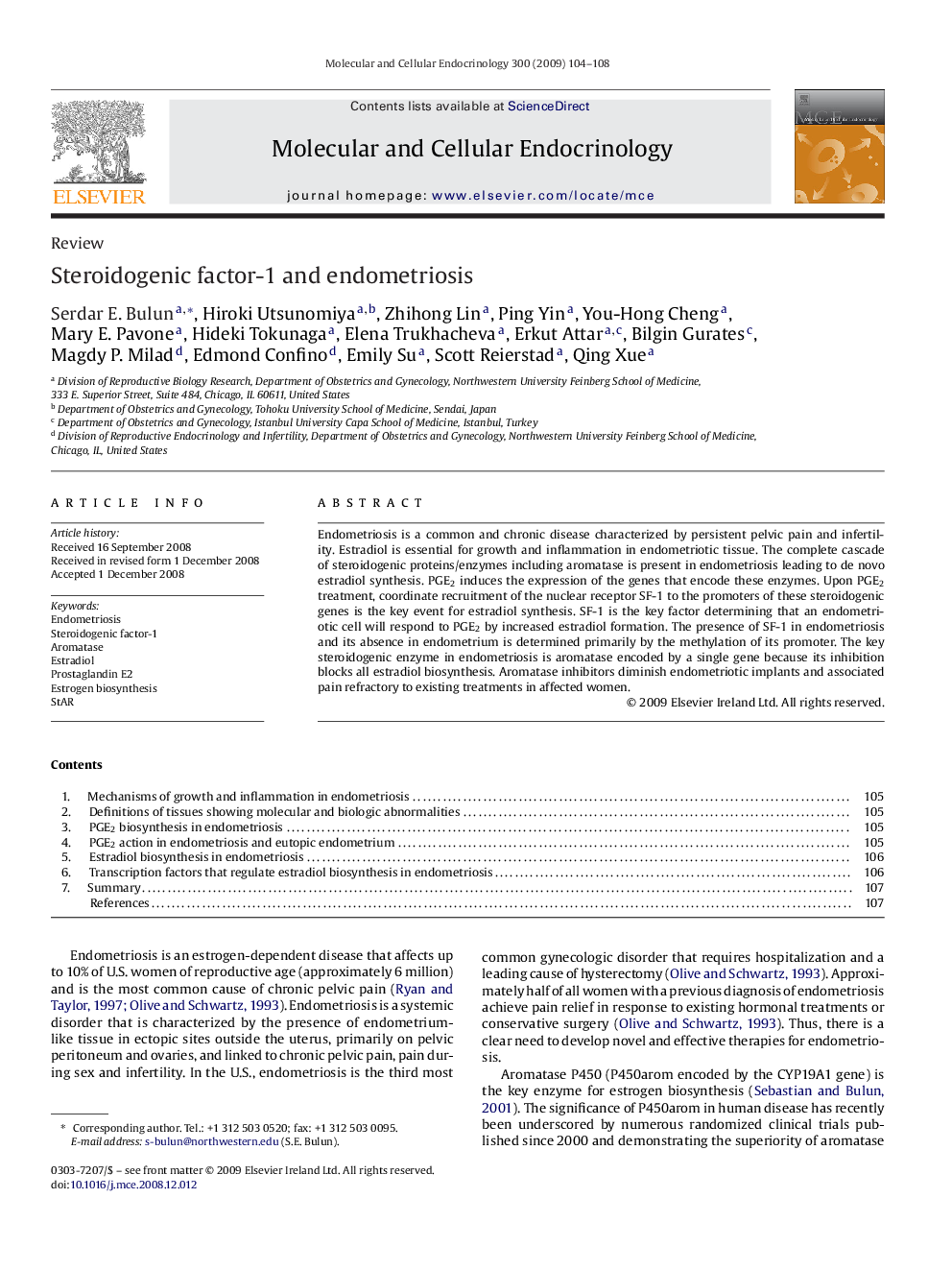| Article ID | Journal | Published Year | Pages | File Type |
|---|---|---|---|---|
| 8478149 | Molecular and Cellular Endocrinology | 2009 | 5 Pages |
Abstract
Endometriosis is a common and chronic disease characterized by persistent pelvic pain and infertility. Estradiol is essential for growth and inflammation in endometriotic tissue. The complete cascade of steroidogenic proteins/enzymes including aromatase is present in endometriosis leading to de novo estradiol synthesis. PGE2 induces the expression of the genes that encode these enzymes. Upon PGE2 treatment, coordinate recruitment of the nuclear receptor SF-1 to the promoters of these steroidogenic genes is the key event for estradiol synthesis. SF-1 is the key factor determining that an endometriotic cell will respond to PGE2 by increased estradiol formation. The presence of SF-1 in endometriosis and its absence in endometrium is determined primarily by the methylation of its promoter. The key steroidogenic enzyme in endometriosis is aromatase encoded by a single gene because its inhibition blocks all estradiol biosynthesis. Aromatase inhibitors diminish endometriotic implants and associated pain refractory to existing treatments in affected women.
Keywords
Related Topics
Life Sciences
Biochemistry, Genetics and Molecular Biology
Cell Biology
Authors
Serdar E. Bulun, Hiroki Utsunomiya, Zhihong Lin, Ping Yin, You-Hong Cheng, Mary E. Pavone, Hideki Tokunaga, Elena Trukhacheva, Erkut Attar, Bilgin Gurates, Magdy P. Milad, Edmond Confino, Emily Su, Scott Reierstad, Qing Xue,
